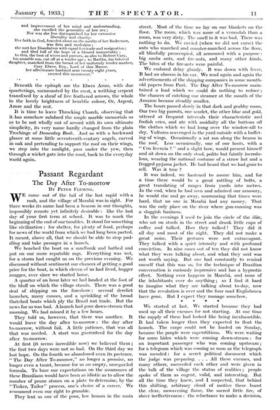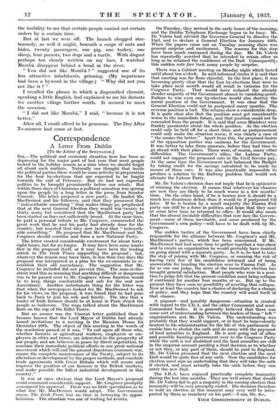We started at last. We started because they had used
up all their excuses for not starting. At one time the supply of these had looked like being inexhaustible. It had taken longer than they expected to float the launch. The cargo could not be loaded on Sunday, because the people were superstitious. We were waiting for some hides which were coming down-stream : for an important passenger who was coming upstream ; for a telegram which was coming as soon as the telegraph was mended : for a secret political document which the judge was preparing. . . . All these excuses, and many others, succeeded each other and were given in the talk of the village the status of realities ; people spoke of them as cogent, valid, and interesting. But all the time they knew, and I suspected, that behind this shifting, arbitrary cloud of motive there burnt the clear, unwavering flame, the sacred little fire, of sheer ineffectiveness : the reluctance to make a decision.
the inability to see that certain people carried out, certain orders by a certain time.
But at last we were off. The launch chugged star- torously, as well it might, beneath a cargo of nuts and hides, twenty passengers, one pig, one turkey, one sheep, four parrots, two dogs and a turtle. With disgust perhaps too clearly written on my face, I watched Maraba disappear behind a bend in the river.
"You did not like Mamba ? " suggested one of its less attractive inhabitants, grinning. (My impatience had been a byword in the village.) "Why did not you not like it ? "
I recalled the phrase in which a disgruntled chemist, speaking a little English, had explained to me his distaste for another village further south. It seemed to meet the occasion.
"I did not like Maraba," I said, "because it is not better."
After all, I could afford to be generous. The Day After To-morrow had come at last.





































 Previous page
Previous page